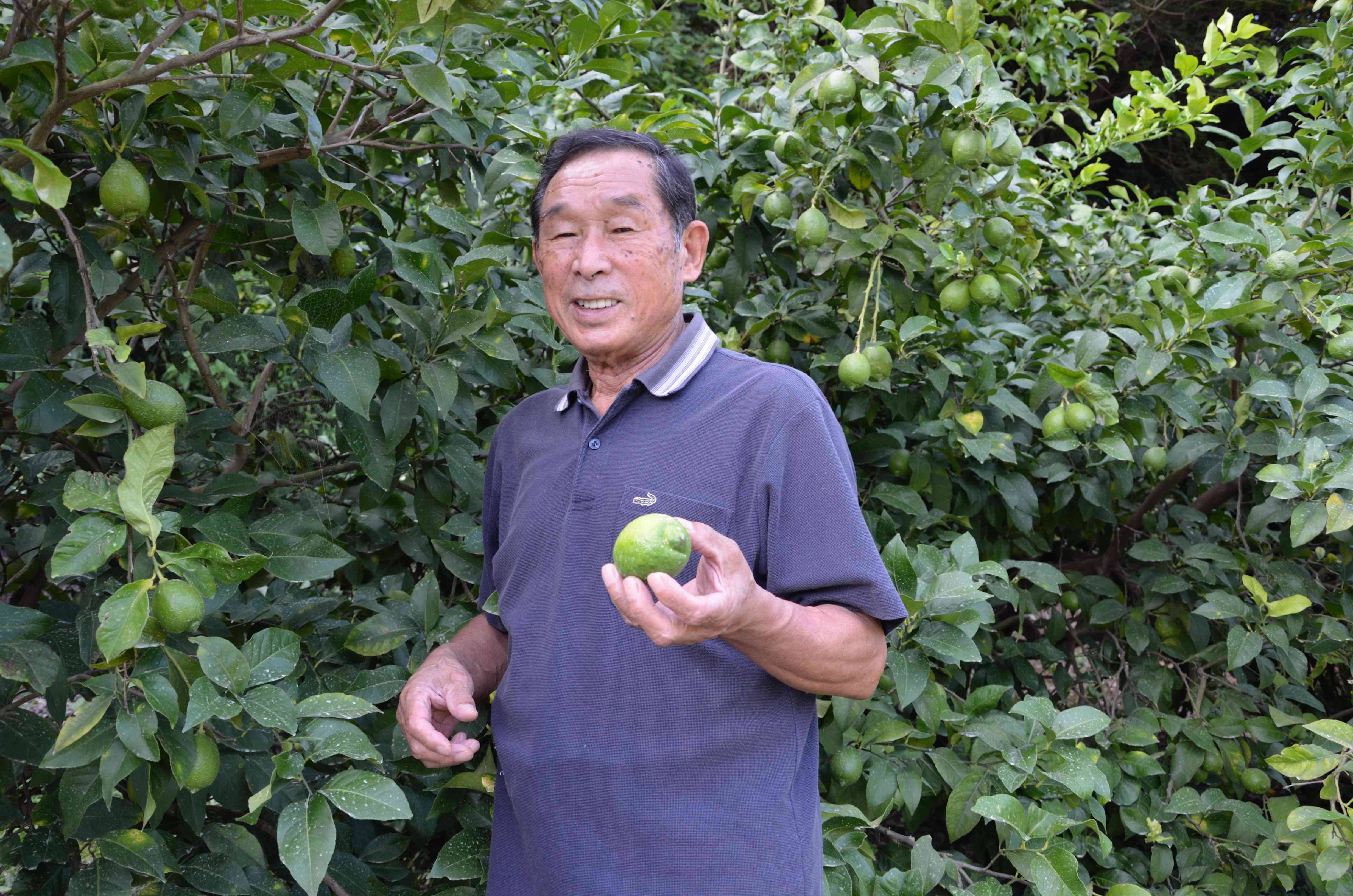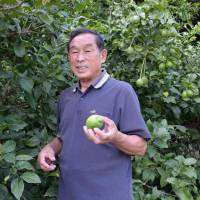Prime Minister Shinzo Abe and his administration have recently been mulling major changes to the country's farm policy. The move comes against the backdrop of high production costs and average farm size not having grown much since 1965.
For decades the government has used tariffs and subsidies to support small farmers, but it now wants to shift support to larger, more business-oriented farms that Abe and others believe are better suited to survive in the global economy.
The proposed changes are radical, and they've drawn lots of media attention — mostly focused on the potential economic impacts, especially whether they would increase profits, make food cheaper, or create new business opportunities.
But 77-year-old Souichi Yamashita, who is perhaps the nation's most famous writer-farmer, believes those are the wrong questions to be asking.
"The government is trying to promote American-style agriculture and push out small producers, but that model doesn't suit Japan. Even if agriculture becomes stronger as an industry, what will happen to communities? What will be left in 30 years?" Yamashita mused one afternoon in the large, sparsely furnished farmhouse in a seaside village in Karatsu, Saga Prefecture, where he has spent his life.
Over the past 40-odd years, Yamashita he has authored or contributed to more than 45 books about agriculture, and he's traveled to villages around the world to glean insights into the problems faced by Japan's farmers. The answers he has distilled are not unique — build a diversified local food system, value farmers more — but they are informed by a perspective that is rare in its breadth and depth.
Born in 1936, Yamashita was the eldest son in a large farming family. His father wanted to ensure the farm survived to the next generation — and his means of doing so was simple. "Dad realized that the problem was education: educate kids and they leave, the house is ruined and the village falls apart. So he didn't let me go to high school," he explained.
Yamashita, who didn't want to be a farmer, determined to get a degree by correspondence while working days in the fields. But when it came time to take the test, his father forbade it. That made Yamashita give up on the degree — but he started reading novels. He also joined a literary club and wrote a play before he became too busy with full-time farming — cultivationg tobacco, rice and citrus fruit — to continue.
Then, when he was 30, he injured himself and was bedridden for a while. He started to write again: a novel, which earned him a national prize. Around then, his parents had also grown too old to work, and the family could no longer survive on income from the farm alone. Instead of going to work in the city like many of his friends, Yamashita decided to earn money by writing. And because farming was what he knew, he wrote about it.
One thing he described in his non-fiction books was how his village changed over time. During our meeting, he put it like this, saying, "Until the 1960s, rice prices were high. You could live well on the income from one hectare of rice. But as the economy grew, farmers couldn't keep up. The gap between farm income and wages grew wider and wider. Farm production was simplified, scale expanded, mechanization advanced, and fewer people were needed."
He benefited from the changes, as the 58 tiny rice paddies he once cultivated were combined into five. But he saw the problems, too: depopulation, growing environmental damage, and — as the manufacturing economy boomed — less respect for farmers.
The clash between Japan's growth-based economic model and the reality of farming is one he continues to write and think about today.
"Agriculture depends on nature, and nature can't be modernized. You can't make a rooster lay eggs or force rice plants to produce twice a year. So to keep up with 3 percent annual economic growth, you'd need to expand farm size by 3 percent each year, or improve efficiency by that much, or raise food prices. It's impossible.
"But I think it's fine to stop growing, and instead create a cyclic system. The problem is the people who say constant growth is necessary," he said.
Hoping to find inspiration for how Japan's farmers could survive trade liberalization and globalization, Yamashita went to China, Russia, Mexico, Brazil, the United States and many other countries.
"My biggest discovery was the importance of a localized food system. Japanese farms can never win in a head-on competition with the U.S. One solution is to grow things that only Japan can grow. What? Wasabi and shiitake mushrooms?
"The alternative is to play up Japan's single strength: the fact that consumers and producers live very close to one another. If people choose local products, even the TPP (Trans-Pacific Partnership, a U.S.-led multinational trade pact that would likely increase cheap food imports) can't destroy that," he said.
The approach has given him a glint of optimism within a generally dark view of current farm policy and the changes Abe's regime may usher in. Yet unlike many pundits, Yamashita doesn't believe Japan's farms are in danger of extinction.
"When the economy falls apart, people will come back to the land. Our job is to preserve these places. People need something to return to," he said.
As he drove through the sleepy village he once longed to escape, stopping to chat with his brother at work in a greenhouse and his cousins drinking tea by the side of a field, I asked him if he thought Japan's rural communities have their own culture, different from and just as valuable as that in cities.
He responded with a deadpan expression on his face: "Cities have culture?"




